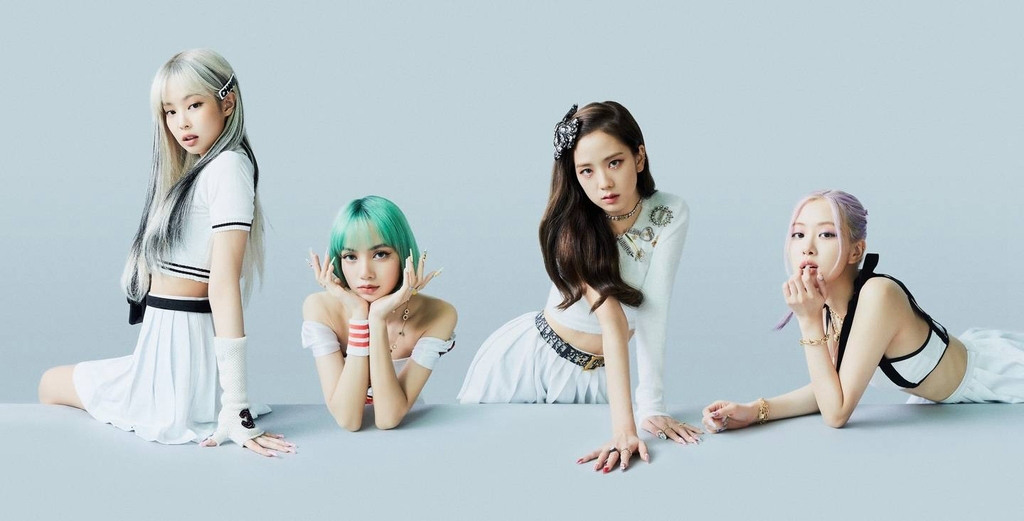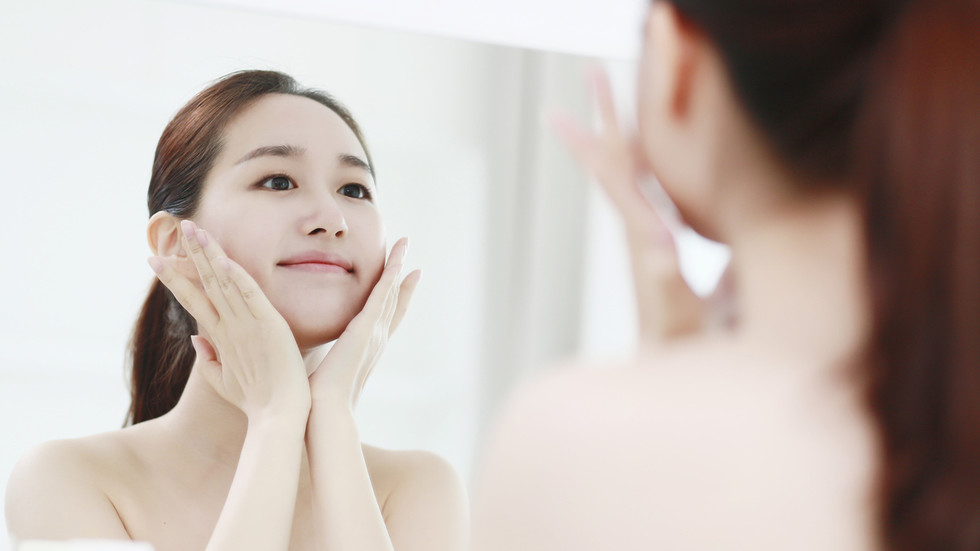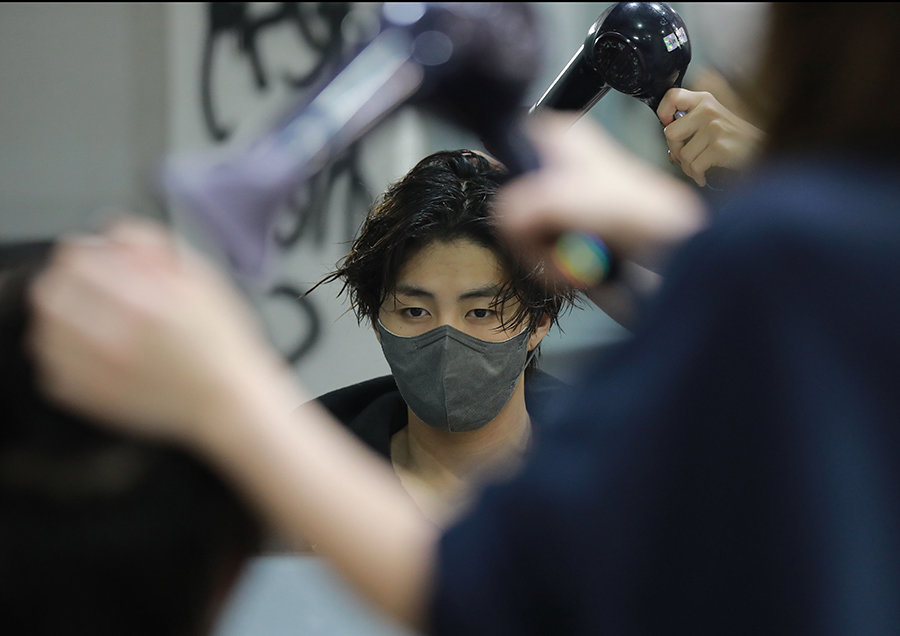
分类: 嫩草
-

K-pop sensation Blackpink will hold a pop-up exhibition from Aug. 21-30 to celebrate the fifth anniversary of the group’s debut, YG Entertainment said Thursday

The exhibition is part of what is called the “4+1 project” the agency announced in June on its social media with a mysterious teaser. Aside from the exhibition, the project consists of a new film in August, a special edition photobook and three others that have yet to be announced -
日本化妆品企业宝丽奥蜜思控股旗下品牌奥蜜思将于4月12日启动根据每位顾客的肤质提供美容液的定额收费服务
日本化妆品企业宝丽奥蜜思控股(POLA ORBIS HOLDINGS)旗下品牌奥蜜思3月16日发布消息称,将于4月12日启动根据每位顾客的肤质提供美容液的定额收费服务。向顾客提供可在家中测量皮肤状态的仪器,每月寄送3瓶适合顾客皮肤状态的不同种类美容液。顾客可手工对3瓶美容液进行混合等,奥蜜思还将提供适合当天皮肤状态的组合建议。
这项服务名为“cocktail graphy”,每月使用费为7920日元(约合人民币472元)。顾客租用仪器时,仅需在首月支付3300日元即可。奥蜜思自主研发的皮肤状态测量仪“Skin Mirror”利用水分传感器和图像分析摄像头来测量皮肤的水分、皮脂含量、毛孔状态等。还可以与APP联动,记录每天的数据。
奥蜜思并未公开美容液的种类,据称有数百种组合。此外,在进行皮肤护理的早晚时间段,还将提供护肤方法等建议。
-
松本清出保湿霜,解决戴口罩皮肤干燥烦恼
日本松本清控股(HD)将于2月11日上市含有维生素成分的保湿霜,可帮助修复佩戴口罩导致的皮肤粗糙。松本清在原来含有保湿效果好的“类肝素(Heparinoid)”成分的油性面霜中,新添加了促进修复皮肤干燥的两种维生素。
商品名称为“Hirumenaido油性面霜Plus”,将通过松本清的自有品牌matsukiyo推出。在含有类肝素的热门商品“Hirumenaido油性面霜”中,添加了促进干燥粗糙皮肤修复的“维生素E醋酸酯(Tocopherol Acetate)”和“泛醇(Panthenol)”两种维生素。
产品售价为1380日元(不含税,约合人民币84.45元)。不添加色素、类固醇、乙醇等,婴幼儿也可以涂抹。容量为50克,将通过松本清旗下门店和网店销售。
如果戴脱口罩的机会增加,皮肤就会感知急剧的温度和湿度变化,容易发生干燥。由于防疫措施造成皮肤粗糙,保湿能力高的护肤品的需求迅速增加。松本清还准备通过提出乳液和化妆水等产品方案来满足这方面的需求。
-

Korean scientists may have discovered ‘elixir of youth’ that ‘erases wrinkles’ and could even reverse brain and muscle decline

Researchers have developed a rejuvenating gene therapy for human skin that has the potential to make “ageing a reversible phenomenon.” RT spoke to the lead scientist, Professor Kwang-Hyun Cho, about the astonishing breakthrough.
Scientists at the Korea Advanced Institute of Science and Technology (KAIST) have discovered a way to make skin cells “grow younger.” They claim the original technique can be used to “reverse the ageing process and prevent diseases related to ageing and prolong life span.”Speaking to RT from KAIST University, Professor Kwang-Hyun Cho, the lead scientist in the study, said seeing the revitalized skin in the laboratory was “dramatic,” and added that the newly discovered technique “applies not only to human skin but also to our whole body.”
Professor Cho described his newly developed technique as “opening the door for a new generation that perceives ageing as a reversible biological phenomenon.” It relies on using chemical inhibition and gene interference to “switch off” a molecule that makes cells grow old. The ageing of a cell is called cell senescence. The researchers were able to “reawaken” skin cells in the lab and rejuvenate their ability to repair and divide into newer versions of themselves.
The results showed that the overall functionality of skin tissue was regenerated, giving the skin a healthy amount of collagen and elastic fibers, ridding the tissue of wrinkles. The promise of the technique could see an end to the ravages of age like dryness, creases, loss of elasticity and thinning skin.
Cashing in on younger skin
Obviously, South Korea’s booming cosmetic surgery industry is keen to exploit any new medicine that promises to make slack jawlines, age spots, and wrinkled foreheads a thing of the past. They know its value can only increase because the world’s aged population is at its highest level in human history. With an estimated 700 million people over 60, the desire to be forever young can only intensify.
Seoul-based cosmetics company Amorepacific is already on the case and has begun to develop the technology further with assistance from the scientists from KAIST. Director of research and development at Amorepacific, Park Won-Seok, said this joint research allowed the company to see if the technique had the potential “to reverse the ageing process in the skin.” He added that his corporation will continue to build on the research to “improve the progress of ageing that was previously thought impossible.” Amorepacific is already seeing the benefits of this collaboration with its share price rising steadily since the announcement in late November.
Masks up = nip and tuck
The world’s fixation with outward appearances has been amplified by our addiction to social media sites like Facebook, TikTok, and Instagram. South Korea could top the leaderboard for today’s ‘beauty-sick’ culture. The term ‘beauty-sick’ was coined by US psychologist professor Renee Engeln, who described a growing tendency to place beauty at the top of an individual’s personal agenda. Meaning people will commit more money, resources, and time towards their appearance than is healthy.
Fixation on beauty above all has reached epidemic proportions in South Korea, particularly affecting women, but also a growing number of younger men thanks to the popularity of porcelain-faced boybands like BTS. There has been a surge in demand for cosmetic surgery throughout the coronavirus pandemic with many Koreans using their Covid-19 stimulus handouts for a little nip and tuck. Aesthetic perfection seekers are taking advantage of mandatory face masks and stay at home orders, viewing them as the perfect opportunity to have some work done. Statistics from 2019 by the International Society of Aesthetic Plastic Surgery (ISAPS) revealed South Korea has the highest density of plastic surgeons in the world, where an estimated 60 percent of females in their 20s have had a cosmetic procedure.
Are there any drawbacks?
As uncontrolled cell division could lead to the formation of malignant tumors, I asked Professor Cho if there were any fears that “reawakening” senescent cells could cause cancer. He said that these genetically edited skin cells will be able to renew, without turning cancerous, telling me that his experiments revealed that the “cells proliferated safely upon external growth signals.” When no external growth signals were received, the cells “died by apoptosis.” Apoptosis is the programmed cell death that happens naturally when the human body is in its early development phase. In this way, he says the skin will not have an accumulation of “senescent cells”’ that can cause inflammation to their surroundings.
But those hoping to roll back the wrinkles with Professor Cho’s miracle cure will have to have deep pockets. He said that there could be a significant cost in bringing the current procedure to the stage where it can be used in surgeries. His new approach could be market-ready within “five to seven years, depending on the success of future experiments.” However, he claims that by then “it would be able to replace the current plastic surgery for mitigating wrinkles.” Perhaps even more excitingly, with more development, the method may also “reverse muscle loss and brain deterioration” and could even be used as an “anti-cancer therapy.”
However, the cost factor involved could accentuate the growing divide between the rich and the poor, not to mention blurring the distinction between the young and the old. Conjuring up of images of grandmothers whose youthful facades are the envy of their granddaughters. Or two pensioners meeting, one carrying the deep creases of age, the other flaunting the porcelain skin of a K-pop singer.
This revolutionary new technique may restore the face to its former youth, but will it repair the fragility and insecurity of the person beneath?
-
日本最近出现了一个新造词“チャイボーグ”(Chiborg),是由“China“和“Cyborg”组合而成的一个词,指的是像“机器人”一样精致漂亮的中国风妆容
就在当下,随着中国古装剧在日本的热播,中国化妆术与漂亮的女主角一并被搬上话题。这种妆容的特点是,眉毛鲜明而突出,眼线描得很浓,还要贴上忽闪忽闪的假睫毛。皮肤要抹得十分白皙,还要有一头乌黑发亮的长发。原本就是大美女的女演员们,经过一番浓妆艳抹,个个变得像瓷娃娃一样漂亮。
再现这种美丽的中国式妆容正在日本成为话题。与此同时,用于表现这种美妆的“中国化妆品”也在日本受到关注。据说在被认为引领流行潮流的日本女高中生中尤其受到青睐。
日本最近出现了一个新造词“チャイボーグ”(Chiborg),是由“China“和“Cyborg”组合而成的一个词,指的是像“机器人”一样精致漂亮的中国风妆容,或者像机器人一样超凡脱俗的中国美女,这里暂且译作“中华妆”。
中华妆具体来说就是像中国的京剧、古装剧里的女主角一样,画出浓浓的眼线,通过贴假睫毛或嫁接睫毛来突出眼睛的大而亮,还有就是使用深红等颜色鲜艳的口红。这与此前日本女性崇尚的自然妆容截然相反。
随着中华妆的流行,中国化妆品也开始在日本受到关注。
在销售各国化妆品的日本购物中心,近十年来也出现了亚洲化妆品。大部分为韩国化妆品,香港化妆品也因为价格低廉而受到女高中生的青睐。但购买度远不及欧美的品牌化妆品以及公认品质较高的日本化妆品。
日本市场的门槛之高世界闻名。由于消费者的眼光十分挑剔,如果产品能够被日本市场接受,那么也会在其他国家受到认可。
日本女性拥有根深蒂固的“大和抚子”(指代性格文静矜持、温柔体贴并且具有高尚美德气质的女性)传统思想,认为没有个人主张、不爱出风头才是淑女风范。现代社会当然已经有所不同,但与其他国家的女性相比,日本女性仍秉承着与周围的人保持和谐一致的基本原则。
